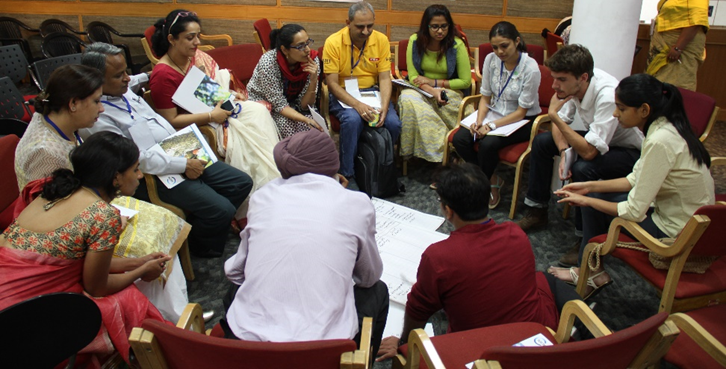Another step forward towards biodiversity conservation by Anantara Tangalle Resort
Anantara Peace Haven Tangalle Resort partnered with IUCN in May 2017 to protect and conserve globally threatened marine turtles. The 220 meter-long stretch of sandy shore bordering the resort premises, frequently used by sea turtles for egg laying, allowed the resort and IUCN to engage and educate resort staff, community and visiting guests on marine conservation.

The Octopus bush on the Rekawa beach (IUCN)
Photo: Kumudini Ekaratne\© IUCN
Having enhanced the knowledge of the community, resort employees, and guests through several awareness programmes conducted by IUCN, the resort has taken steps to facilitate turtle nesting on the beach. The effort is supported by the Resort Naturalist. The steps to promote nesting included reducing illumination of the beachfront to minimise the disturbance to turtles coming to the shore for nesting, protecting nests from egg predators such as dogs and monitor lizards by covering them with galvanised mesh protective covers, and beach patrolling by the resort’s security personnel. The resort’s conservation efforts resulted in a total of 13 nests during the month of July 2018. The information system maintained by the Resort Naturalist also contributes to the national nesting records database maintained by the Department of Wildlife Conservation.
The Anantara Resort Biodiversity Survey Report compiled by IUCN in 2017 serves as a guide to implementing conservation of Endangered species. While enhancing the conservation efforts, the resort piloted the propagation of a rare plant, namely the octopus bush (Tournefortia argentea), listed as Endangered in the National Red List of Sri Lanka. The octopus bush belongs to the family Boraginaceae and commonly grows in beach forests, coral cays or on beaches with coral debris.
Before 1939, the octopus bush had been recorded in Trincomalee and Tangalle in northeastern and southern Sri Lanka, respectively. In November 2015, IUCN recorded a few plants in the Kachchathive Island in northern Sri Lanka. The total number of octopus bushes recorded in the country is estimated to be less than eight and one of them is located on Rekawa Beach, near the resort. The Resort Naturalist and the horticulturist brought two saplings from the mother plant in Rekawa to the Resort on 20 March 2018 for propagation as part of the conservation efforts. The sapling planted at the resort beach is doing well.
The Anantara Peace Haven Tangalle Resort is setting an example in conservation for the hospitality industry by engaging its staff, guests, communities and scientists through the “Dollars for Deeds” programme. The programme provide an opportunity for the guests to also take part in protecting ecosystems and endangered species, with a special focus on turtles, while enjoying unique Anantara hospitality.



